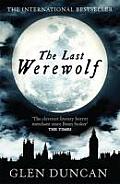Avoiding Research as a Spur for Creativity
I doubt I’ll get to horror author Glen Duncan’s novels soon, but I enjoyed John Williams’s interview with him for the New York Times:
Of course, you have to acknowledge your readers’ expectations in some way and establish the rules of your vampire early in the story.
Williams’s continued curiosity about research led Duncan to talk about how he put that rule (or lack of a hard rule) into practice:
Did commercial considerations play a prominent role in these books?In my workshop at the SCBWI New England conference last spring, I asked the attendees, “How do you kill a vampire?” After we accumulated a bunch of replies, I gave my answer: “Since vampires aren’t real, you can kill them any way you want.”
Yes. I wasn’t making enough money. My original plan was to write a Victorian serial killer novel, “Oliver Twist” meets “The Silence of the Lambs” (which someone reading this will now write and clean up with), but the research was a drag. Nineteenth-century English literature I know; 19th-century sewage systems not so much.
Then, on New Year’s Eve 2009, a friend asked me what I was “hoping to achieve” in the next 12 months. Resisting the urge to break a bottle over his head, I said — for no reason I can now remember — that I was going to write a novel about the last surviving werewolf. Agreement that this was a good idea was slurred but unanimous. Moreover, it still seemed a good idea when I woke up the next morning.
Of course, you have to acknowledge your readers’ expectations in some way and establish the rules of your vampire early in the story.
Williams’s continued curiosity about research led Duncan to talk about how he put that rule (or lack of a hard rule) into practice:
What kind of research did you do for these novels? How did you balance loyalty to the details of the vampire and werewolf myths with making them your own?As long as the choices serve the story, an author can get away with nearly anything.
No research at all. The balance was determined partly according to taste (death by silver is cool; I was definitely keeping that) and partly according to thematic utility. Some versions of the myth allow for voluntary [werewolf] metamorphosis, but that doesn’t present the same dilemma of conscience. The lunar enslavement forces a choice between murder and death — a much richer moral quandary.



2 comments:
The Last Werewolf is actually a rather good read, well, I'm enjoying it so far.
And for an "Oliver Twist meets Silence of the Lambs" sort of a book, try Caleb Carr's 1994 novel, "The Alienist", set in 1896 New York.
I also thought of The Alienist when I reread Duncan's comment. But evidently that was nearly two decades ago!
Thanks for the recommendation of The Last Werewolf.
Post a Comment